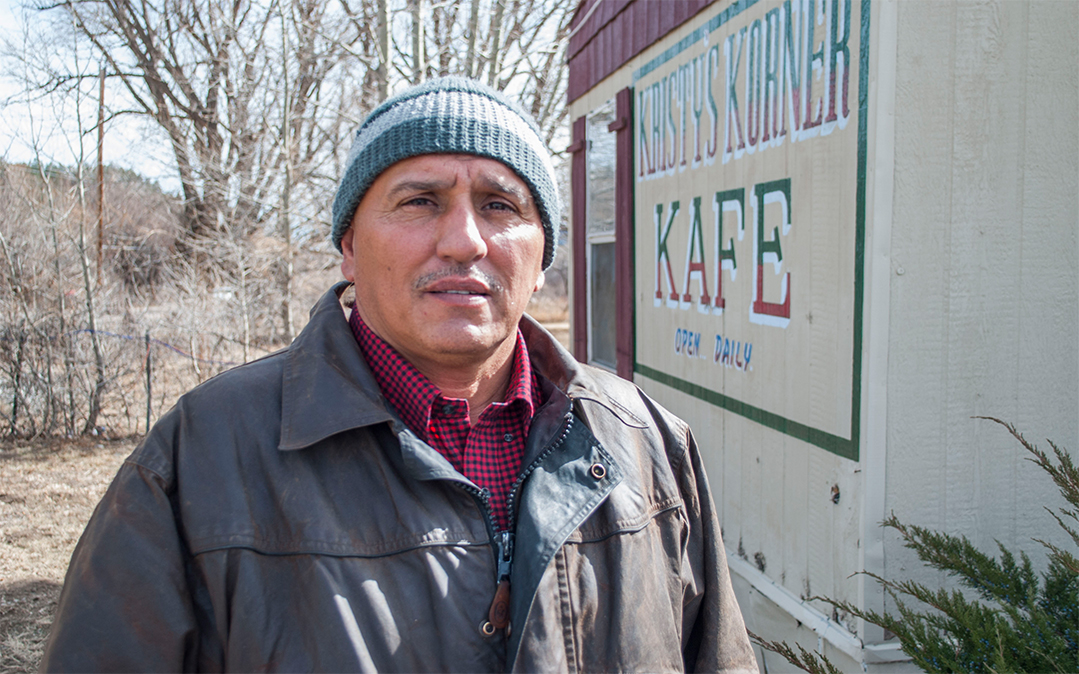
Jimmy Sanchez, 55-year-old farmer and mayordomo of the Acequia de la Sierra de Holman Arriba, tells me stories of the old days. His tales are laced with old New Mexico Spanish as we wade through ankle-deep snow up one of the brazos, or branches, of the ancient irrigation system. “If there is water, the people are happy,” he says. “Wilderness protects the water.”
Opponents of public lands claim that rural communities are economically harmed by Wilderness designations, national monuments, and public lands in general. They claim that if only those public lands could be sold to private interests or put under state control, economic growth would take off. Sanchez, whose family has made a living on the border of public lands for generations, thinks differently.
The acequias of New Mexico are community-run irrigation networks that date back to when the state was under Spanish control. They’ve persisted due to hundreds of years of collective effort—as mayordomo, Sanchez is taking his turn as elected “ditch boss” of the acequia, responsible for organizing the ditch cleaning in the spring and allocating the water to the 34 families along its 26 miles, who grow everything from grapes to plums to oats, alfalfa, and wheat. From the farms, the acequia dumps into the Mora River, feeding valuable wildlife habitat.

But just because something has endured for hundreds of years, doesn’t mean that it can’t be taken away.
The Acequia de la Sierra de Holman Arriba begins as a trickle of water dancing out from the base of melting snow in the high sierra of northern New Mexico, well within the Pecos Wilderness. Holman, the tiny northern New Mexico community of double-wide trailers and adobe structures where Sanchez lives, sits on the northern edge of the 223,667-acre Pecos Wilderness. Every year it seems to Sanchez that he has to confront another legislative push to muscle in on public land.
Sometimes it’s at the federal level. Other times the move is at the state legislature, or even from within the community, by people who hope to profit if lands are privatized. In the past, acequia waters have been taken from members and given over to larger landowners or developments; as a result, the acequias have grown politically saavy at fighting such moves. “If you don’t protect what you have, they’ll come and take it from you,” says Sanchez.
Right now, the battle for control over public lands is fraught at every level. Earlier this month, Rob Bishop (R, UT) introduced a $50 million plan to push state takeover of public lands. A recent report produced by the Center for Biological Diversity identified 132 bills in the last five years that were introduced at the federal level, seeking to reduce nationwide…





